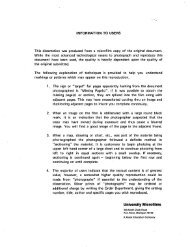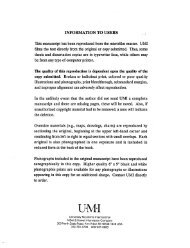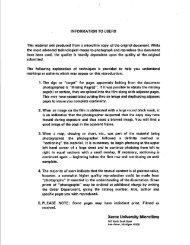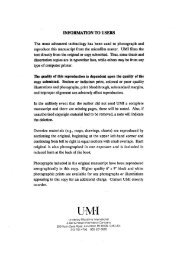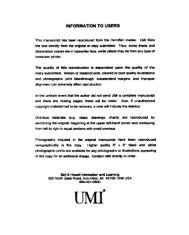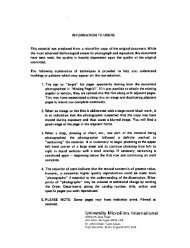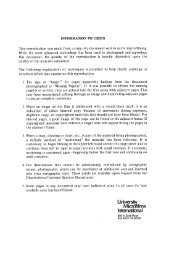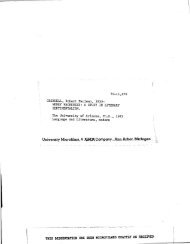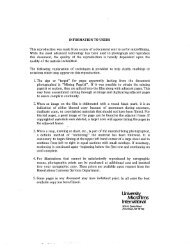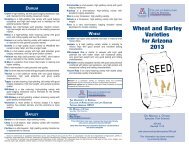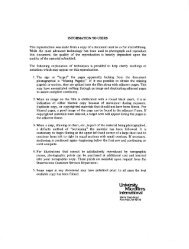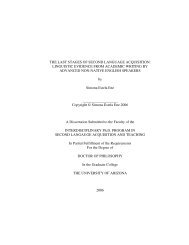1 THE AUTONOMIC PHYSIOLOGY OF TERROR MANAGEMENT ...
1 THE AUTONOMIC PHYSIOLOGY OF TERROR MANAGEMENT ...
1 THE AUTONOMIC PHYSIOLOGY OF TERROR MANAGEMENT ...
Create successful ePaper yourself
Turn your PDF publications into a flip-book with our unique Google optimized e-Paper software.
Also suggesting that insecure self-esteem disposes one to threatened experience is<br />
work investigating narcissism. Narcissistic personalities have shown greater fluctuations<br />
in self-esteem as a consequence of performance on a purported intelligence task<br />
(Rhodewalt & Morf, 1998), and those scoring high on narcissism have expressed more<br />
anxiety, anger, and aggression after and experimentally manipulated failure or insult<br />
(Rhodewalt & Morf, 1998; Bushman & Baumeister, 1998).<br />
Investigating security of self-esteem and threat in yet another way, particular<br />
contingencies of self-esteem seem to offer more security and protection from<br />
psychological threat. For example, Schimel, Arndt, and colleagues showed that when<br />
extrinsic and less secure bases of self-esteem were made salient, participants tended to<br />
respond in more threatened ways (Arndt, Schimel, & Greenberg, 2002; Schimel, Arndt,<br />
Pyszczynski, & Greenberg, 2001). They conformed more, self-handicapped more, made<br />
more downward social comparisons, distanced more from a negative other, and made<br />
more downward counterfactuals to explain a negative event. Making a similar point,<br />
Crocker showed that contingencies of self-esteem that are more external predict greater<br />
stress and aggression (Crocker, 2002). Additionally, in a related vein, more diverse<br />
sources or contingencies of self-esteem also seem foster greater stability in self-<br />
evaluations, and this self-complexity predicts lessened stress and depressed affect in<br />
response to failure and daily challenges (e.g., Linville, 1987; Linville, 1985).<br />
Trait self-esteem, in addition to predicting state self-esteem levels, may also be<br />
conceptualized as a construct that affects the security of self-esteem. Brown and<br />
colleagues (e.g., Brown, Dutton, & Cook, 2001) suggest that trait self-esteem impacts not<br />
16



